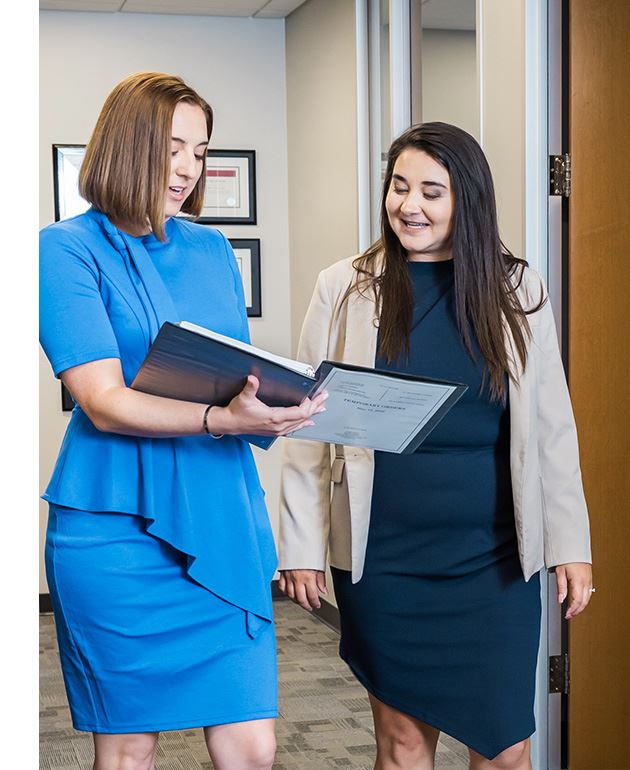Do I Need a Sole Custody Attorney?
If you believe you should have sole custody of your child, then it is important to get in touch with an experienced sole custody attorney. In the already-fraught divorce process, fighting for child custody can be one of the most difficult parts. When one parent is aiming for sole custody, the legal battle typically becomes more heated and challenging.
Generally speaking, it is difficult to prove that one parent deserves sole custody of the child. The Texas legal system favors joint custody on the premise that it is in most children’s best interest to retain contact with both of their parents.
That said, sole custody may be granted to a parent in certain instances. For instance, if one parent has acted neglectfully or abusively towards the child, the other parent may receive sole custody. In these cases, the parent who is requesting sole custody must provide ample evidence to suggest that the other parent should not be allowed certain child-care responsibilities.
This is where a sole custody attorney comes in. An attorney will be able to ensure that the family court reviews as much pertinent evidence as possible before making a custody decision. When the well-being of your child is on the line, you don’t want to take any unnecessary chances. For this reason, if you believe that your child’s other parent is unfit as a caretaker, it is important to have an experienced sole custody attorney on your side.
What is Sole Custody in TX?
While Texas courts favor joint custody, sole custody will be allowed in some instances, such as where one parent has been abusive or neglectful to the child or the divorcing spouse. In Texas, a parent who is granted some sort of custody rights is called a conservator.
According to Texas Family Code, Title 5, §154.004, the court cannot grant joint custody if credible evidence is presented of a history or pattern of past or present child neglect, or physical or sexual abuse by one parent directed against the other parent, a spouse, or a child. In determining custody rights, a judge may interview a child away from the parents in order to determine who the child wants to live with or on any other topic the judge sees fit to make a determination of custody rights.
If the court grants sole custody, or conservatorship, to one parent, it means that parent has complete decision-making authority in regards to the child’s upbringing.
Under Texas Family Code, Title 5, §153.132, this means that the parent with conservatorship has the rights and duties of:
- The right to designate the primary residence of the child;
- The right to consent to medical, dental, and surgical treatment involving invasive procedures;
- The right to consent to psychiatric and psychological treatment;
- The right to receive and give receipt for periodic payments for the support of the child and to hold or disburse these funds for the benefit of the child;
- The right to represent the child in legal action and to make other decisions of substantial legal significance concerning the child;
- The right to consent to marriage and to enlistment in the armed forces of the United States;
- The right to make decisions concerning the child’s education;
- The right to the services and earnings of the child;
- Except when a guardian of the child’s estate or a guardian or attorney ad litem has been appointed for the child, the right to act as an agent of the child in relation to the child’s estate if the child’s action is required by a state, the United States, or a foreign government; and
- The right to: (A) apply for a passport for the child; (B) renew the child's passport; and (C) maintain possession of the child's passport.
The parent who is awarded sole conservatorship can make all decisions on the child’s behalf without consulting with the other parent or taking into account the other parent’s opinion. However, even if one parent is granted sole conservatorship, they still have a duty to the other parent to provide information regarding the child’s, safety, health, and welfare, unless otherwise limited by the court.
It is important to note that even if one parent is deemed unfit to share conservatorship, they may still have the right to visit and interact with the child unless otherwise directed by the court. The court may order that meetings between the noncustodial parent and the child must be monitored, that the unfit parent is never to be left alone with the child, and any other requirements that the court deems are in the best interest of the child.
If the court grants sole conservatorship to one parent, this does not mean that the other parent does not have responsibilities to fulfill. The noncustodial parent may be assigned duties by the court or have parental duties as decided by agreement of the parents and with the court’s approval. Further, the noncustodial parent will still be obligated to pay child support. When deciding what duties and rights the noncustodial parent has, the court will always consider what is in the best interest of the child.
Battling for custody and parental rights can complicate an already stressful divorce process. If you are pursuing sole custody of your children during a divorce, you need the aggressive and experienced attorneys at Diggs & Sadler on your side to guide you through the confusing steps.
Evidence in a Sole Custody Case
To help you pursue sole custody of your children, your attorney will work with you to compile evidence. To make a persuasive argument in favor of sole custody, you’ll need evidence that demonstrates the other parent is unfit to care for your child.
These are forms of evidence that could be useful in your case:
- Witnesses, such as family members or friends who can attest to past parenting behaviors
- Social studies of the parents’ living situations and parenting techniques, conducted by a social worker or other case worker
- Records of the other parent’s past criminal behavior
- Your child’s medical or school records
- Photos, videos, text logs, or call logs
- An interview between a judge and the child to determine the child’s custody preferences
Contact Us
If you are going through a divorce, you are under a lot of stress. This stress is magnified if you are attempting to secure sole custody of your children. The agreements you come to during a divorce will have long-lasting consequences that can affect your life in many ways. With so much to lose, you need child custody attorneys who will carefully explain the legal complexities and fight for your rights. At Diggs & Sadler, we have years of experience getting the results our clients need.
Call the attorneys at Diggs & Sadler today at (713) 766-5355.




